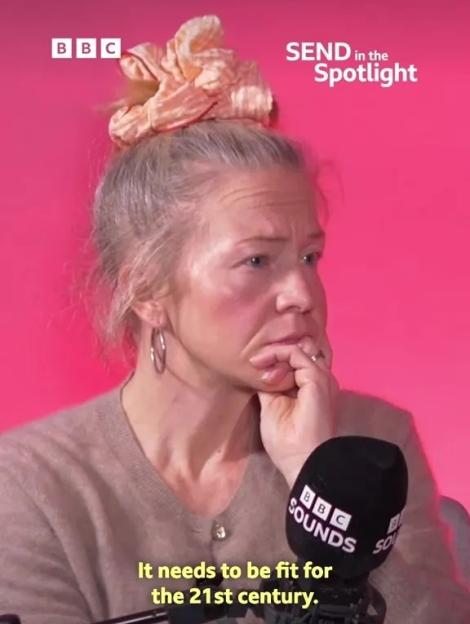FROM competitiveness to narcissism – if Noel and Liam have what it takes to patch things up, you have no excuse!
WITH the whole world watching, have been taking to the stage for the reunion tour – and off the back of their 16-year feud, have proven sibling reconciliation is possible for anyone (though the jury is still out on and . . .).
 Just because you have the same parents, it doesn’t mean you had the same experience growing up
Just because you have the same parents, it doesn’t mean you had the same experience growing up
One of the most impactful relationships you will ever have is with a sibling, who can be a best friend and confidante from day one to the end.
But the dynamic is complex.
Just because you have the same parents, it doesn’t mean you had the same experience growing up.
Likewise, you can share , but not the same outlook on life or values.
Fallouts will occur, and that can lead to long-held feuds.
In fact, one study found 28% of people had experienced at least one estrangement episode with a sibling.*
“Our siblings have known us in our formative years in deeply intimate ways, sharing baths, bedrooms, road trips and battles over broccoli,” says Ali Ross from the UK Council for Psychotherapy.
“During this time, there’s a tension between them being your closest allies and greatest threats.”
How do you when they reach boiling point, or bring up long-standing resentments that are now having a big impact?
“Those conversations can be painful and difficult, especially if this is unprecedented for you in your relationship,” says Ali.
“But they can also be helpful to establish a new way of relating as siblings. It can also be a relief to name the elephant in the room, or to expose that you’ve been misinterpreting something and dispel long-held assumptions.”
But sometimes forgiveness feels impossible, and the healthiest thing to do is to walk away.
Here, Ali explains how to cope with each type of .
The Competitive Sibling
Whether it be over or job salaries, can seep into every crevice of your life.
Exhausting, right? Often it’s just light-hearted banter, but if micro-aggressions are thrown around by your sibling, it can put a strain on your relationship.
“The truth is, people like to be in charge of their narrative and identity – and the way people see themselves within the family, or when compared to siblings, can challenge both those things,” says Ali.
“It is how much you want to buy into that game.”
WHAT NEXT?
When you feel the competitive urge, acknowledge it’s just a reflex, then redirect your energy.
“If you’re casting judgements about a sibling without attempting to understand what it’s like to live their life, challenge yourself to genuinely, compassionately understand them better, then do this for yourself,” says Ali.
He suggests imagining a version of yourself that doesn’t have a sibling to compete with. What would you care about?
“Once you understand the context, the desire to compare and compete diminishes,” he says.
Fallouts will occur, and that can lead to long-held feuds
The Narcissistic Sibling
However much you want to forge a stronger relationship with your sibling, the reality is that sometimes it’s near-impossible.
Does it feel like they won’t take any responsibility for their actions, and don’t seem to be capable of any empathy for you or your viewpoint?
“These are signs of narcissistic behaviour,” says Ali.
“But rather than writing your sibling off as a narcissist and trying to change this other person’s way of being, it is more empowering to understand what you are encountering, what that means for you, and to consider how you are going to navigate that.”
WHAT NEXT?
Ask yourself if your you or caring for you.
“If they don’t, do you really want to have a relationship with them?
“The answer may be hard and upsetting, but it means you can move forward from a more informed position,” says Ali.
There’s a tension between them being your closest allies and greatest threats
Ali Ross
The Peter Pan Sibling
Some people might describe your sibling as a “free spirit”, but you only see them as a big kid.
Ali suggests thinking about why your sibling’s energy irritates you so much.
“Do you feel like you got too old, too soon, or took on more responsibility and feel resentment?” says Ali.
Perhaps you took on caring responsibilities for other family members.
“Ask yourself honestly if there are feelings of being a martyr on your part,” says Ali.
“Have you rushed straight in to put out the fire before anybody else smelled something was burning?”
WHAT NEXT?
Try telling your sibling how much you are struggling.
“Say something like: ‘This is the burden I’m carrying, and you’re not helping,’ and follow it up with some actual strategising to prompt a practical shift,” Ali says.
Our siblings have known us in our formative years in deeply intimate ways, sharing baths, bedrooms, road trips and battles over broccoli
Ali Ross
The Controlling Sibling
Is your sibling overbearing or dictatorial? It’s likely to come from a fear of being vulnerable, says Ali.
“They’re taking power in a situation because they can’t bear the idea of not being in control. However, this feeling is often buried so deep that your sibling won’t recognise it for what it is.”
People under control can end up feeling resentment, but may be too oppressed to express their true feelings.
WHAT NEXT?
“Be aware that calling it out is a threat to their control in itself,” Ali warns.
“It is why they are likely to double-down on their control, or find another insidious way to try to resume or re-establish control.
“It is much better if the controlling person is left to try to figure it out for themselves, and you spend as little time as you can in their orbit.”
It can also be a relief to name the elephant in the room, or to expose that you’ve been misinterpreting something and dispel long-held assumptions
Ali Ross
The Disengaged Sibling
Of course, not all siblings are close.
Or perhaps you once were, but can’t make sense of how your friendship fizzled out.
“Too often, we draw conclusions too early, then base our response on that,” says Ali. There can be a multitude of reasons why your sibling is being elusive.
“Let’s say someone has been abused or neglected in some way [by the family], and they just want out. You cannot force someone to confront something if they do not want to, and you need to respect their space.”
Maybe you’re their problem, in which case, are you ready for some criticism?
“It might be that you are both very different people, and they’re just not that interested in having a relationship with you.
“This will hurt, but at least you’ll hear it for what it is and know what you are dealing with.”
WHAT NEXT?
It’s a tricky conversation, especially if it comes after years of distance.
“Say to them: ‘I feel sad that we don’t have much of a relationship, as far as I see it, and I don’t know why that is. Do you want to feel closer, because I do?’” says Ali.
“You can then try to suggest ways you can bridge that gap or, even better, leave it with them.”






